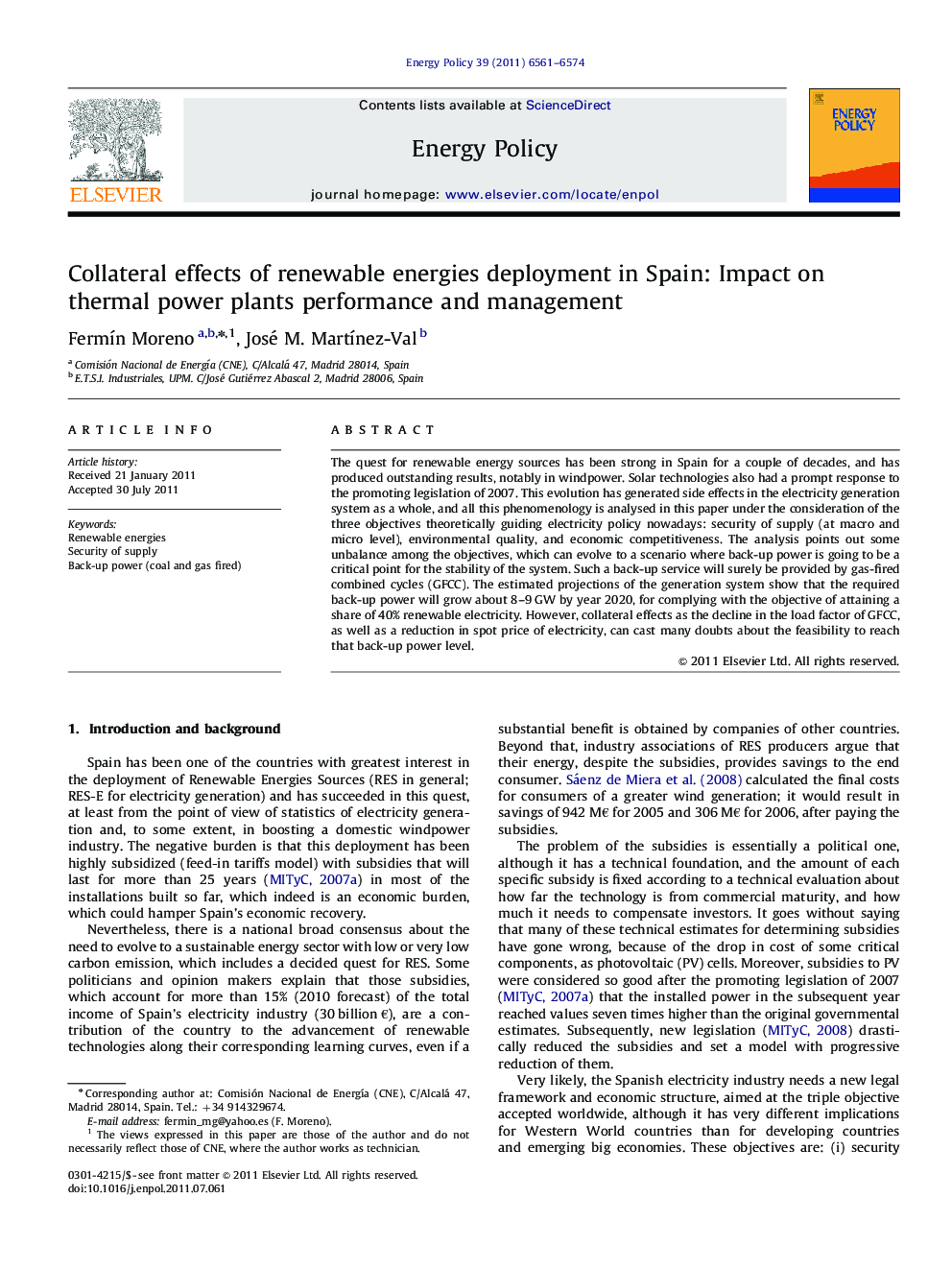| Article ID | Journal | Published Year | Pages | File Type |
|---|---|---|---|---|
| 993092 | Energy Policy | 2011 | 14 Pages |
The quest for renewable energy sources has been strong in Spain for a couple of decades, and has produced outstanding results, notably in windpower. Solar technologies also had a prompt response to the promoting legislation of 2007. This evolution has generated side effects in the electricity generation system as a whole, and all this phenomenology is analysed in this paper under the consideration of the three objectives theoretically guiding electricity policy nowadays: security of supply (at macro and micro level), environmental quality, and economic competitiveness. The analysis points out some unbalance among the objectives, which can evolve to a scenario where back-up power is going to be a critical point for the stability of the system. Such a back-up service will surely be provided by gas-fired combined cycles (GFCC). The estimated projections of the generation system show that the required back-up power will grow about 8–9 GW by year 2020, for complying with the objective of attaining a share of 40% renewable electricity. However, collateral effects as the decline in the load factor of GFCC, as well as a reduction in spot price of electricity, can cast many doubts about the feasibility to reach that back-up power level.
► Renewable energy will not match power peaks with high level of confidence. ► Fossil thermal plants have become back-up systems to substitute for renewable energy. ► Estimations show that 8–9 GW of additional combined cycles will be needed by 2020. ► Electricity from renewable energy will provoke long periods of low spot prices. ► Lack of economic feasibility of thermal plants threatens long term security of supply.
